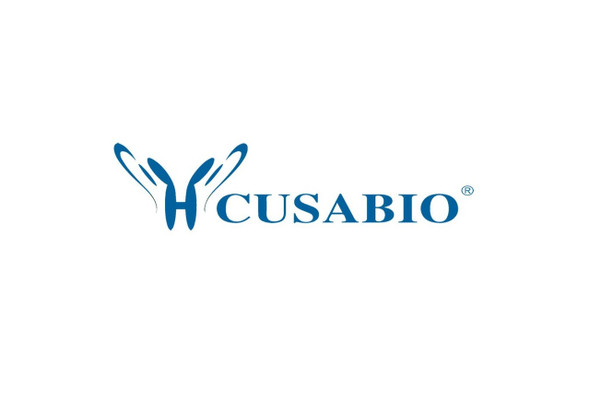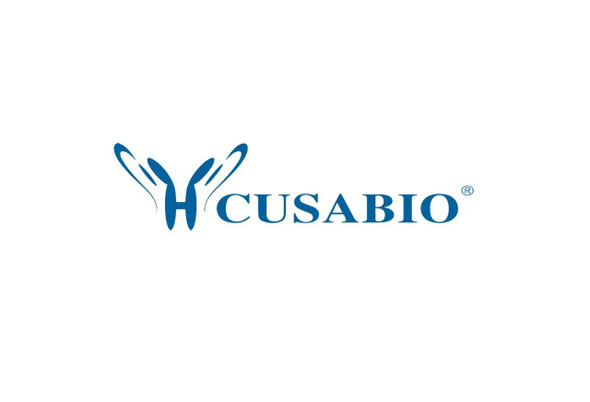Cusabio Human Recombinants
Recombinant Human Mediator of RNA polymerase II transcription subunit 1 (MED1), partial | CSB-EP621880HU
- SKU:
- CSB-EP621880HU
- Availability:
- 3 - 7 Working Days
Description
Recombinant Human Mediator of RNA polymerase II transcription subunit 1 (MED1), partial | CSB-EP621880HU | Cusabio
Alternative Name(s): Activator-recruited cofactor 205KDA component Short name: ARC205 Mediator complex subunit 1 Peroxisome proliferator-activated receptor-binding protein Short name: PBP Short name: PPAR-binding protein Thyroid hormone receptor-associated protein complex 220KDA component Short name: Trap220 Thyroid receptor-interacting protein 2 Short name: TR-interacting protein 2 Short name: TRIP-2 Vitamin D receptor-interacting protein complex component DRIP205 p53 regulatory protein RB18A
Gene Names: MED1
Research Areas: Epigenetics and Nuclear Signaling
Organism: Homo sapiens (Human)
AA Sequence: FGEEYFDESSQSGDNDDFKGFASQALNTLGVPMLGGDNGETKFKGNNQADTVDFSIISVAGKALAPADLMEHHSGSQGPLLTTGDLGKEKTQKRVKEGNGTSNSTLSGPGLDSKPGKRSRTPSNDGKSKDKPPKRKKADTEGKSPSHSSSNRPF
Source: E.coli
Tag Info: N-terminal 6xHis-SUMO-tagged
Expression Region: 878-1031aa
Sequence Info: Partial
MW: 32.2 kDa
Purity: Greater than 90% as determined by SDS-PAGE.
Relevance: Component of the Mediator complex, a coactivator involved in the regulated transcription of nearly all RNA polymerase II-dependent genes. Mediator functions as a bridge to convey information from gene-specific regulatory proteins to the basal RNA polymerase II transcription machinery. Mediator is recruited to promoters by direct interactions with regulatory proteins and serves as a scaffold for the assembly of a functional preinitiation complex with RNA polymerase II and the general transcription factors (PubMed:10406464, PubMed:11867769, PubMed:12037571, PubMed:12218053, PubMed:12556447, PubMed:14636573, PubMed:15340084, PubMed:15471764, PubMed:15989967, PubMed:16574658, PubMed:9653119). Acts as a coactivator for GATA1-mediated transcriptional activation during erythroid differentiation of K562 erythroleukemia cells (PubMed:24245781).
Reference: "The TRAP220 component of a thyroid hormone receptor-associated protein (TRAP) coactivator complex interacts directly with nuclear receptors in a ligand-dependent fashion."Yuan C.-X., Ito M., Fondell J.D., Fu Z.-Y., Roeder R.G.Proc. Natl. Acad. Sci. U.S.A. 95:7939-7944(1998).
Storage: The shelf life is related to many factors, storage state, buffer ingredients, storage temperature and the stability of the protein itself. Generally, the shelf life of liquid form is 6 months at -20?/-80?. The shelf life of lyophilized form is 12 months at -20?/-80?.
Notes: Repeated freezing and thawing is not recommended. Store working aliquots at 4? for up to one week.
Function: Component of the Mediator complex, a coactivator involved in the regulated transcription of nearly all RNA polymerase II-dependent genes. Mediator functions as a bridge to convey information from gene-specific regulatory proteins to the basal RNA polymerase II transcription machinery. Mediator is recruited to promoters by direct interactions with regulatory proteins and serves as a scaffold for the assembly of a functional preinitiation complex with RNA polymerase II and the general transcription factors
Involvement in disease:
Subcellular Location: Nucleus
Protein Families: Mediator complex subunit 1 family
Tissue Specificity: Ubiquitously expressed.
Paythway:
Form: Liquid or Lyophilized powder
Buffer: If the delivery form is liquid, the default storage buffer is Tris/PBS-based buffer, 5%-50% glycerol. If the delivery form is lyophilized powder, the buffer before lyophilization is Tris/PBS-based buffer, 6% Trehalose, pH 8.0.
Reconstitution: We recommend that this vial be briefly centrifuged prior to opening to bring the contents to the bottom. Please reconstitute protein in deionized sterile water to a concentration of 0.1-1.0 mg/mL.We recommend to add 5-50% of glycerol (final concentration) and aliquot for long-term storage at -20?/-80?. Our default final concentration of glycerol is 50%. Customers could use it as reference.
Uniprot ID: Q15648
HGNC Database Link: HGNC
UniGene Database Link: UniGene
KEGG Database Link: KEGG
STRING Database Link: STRING
OMIM Database Link: OMIM









